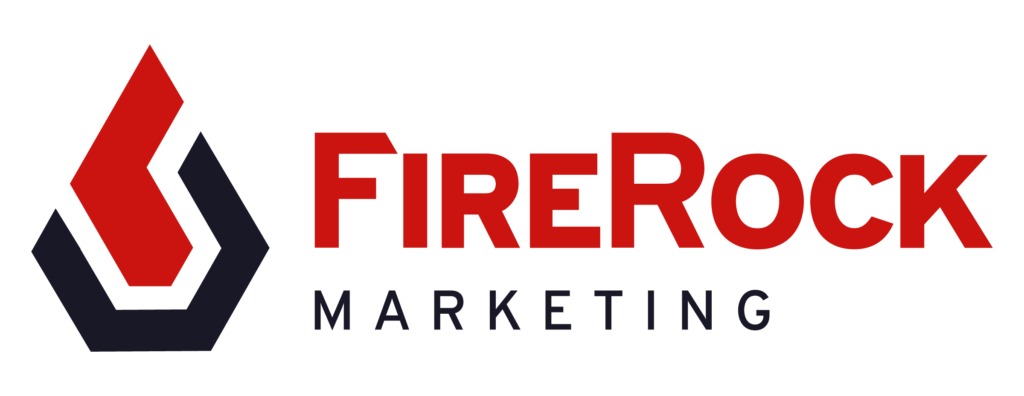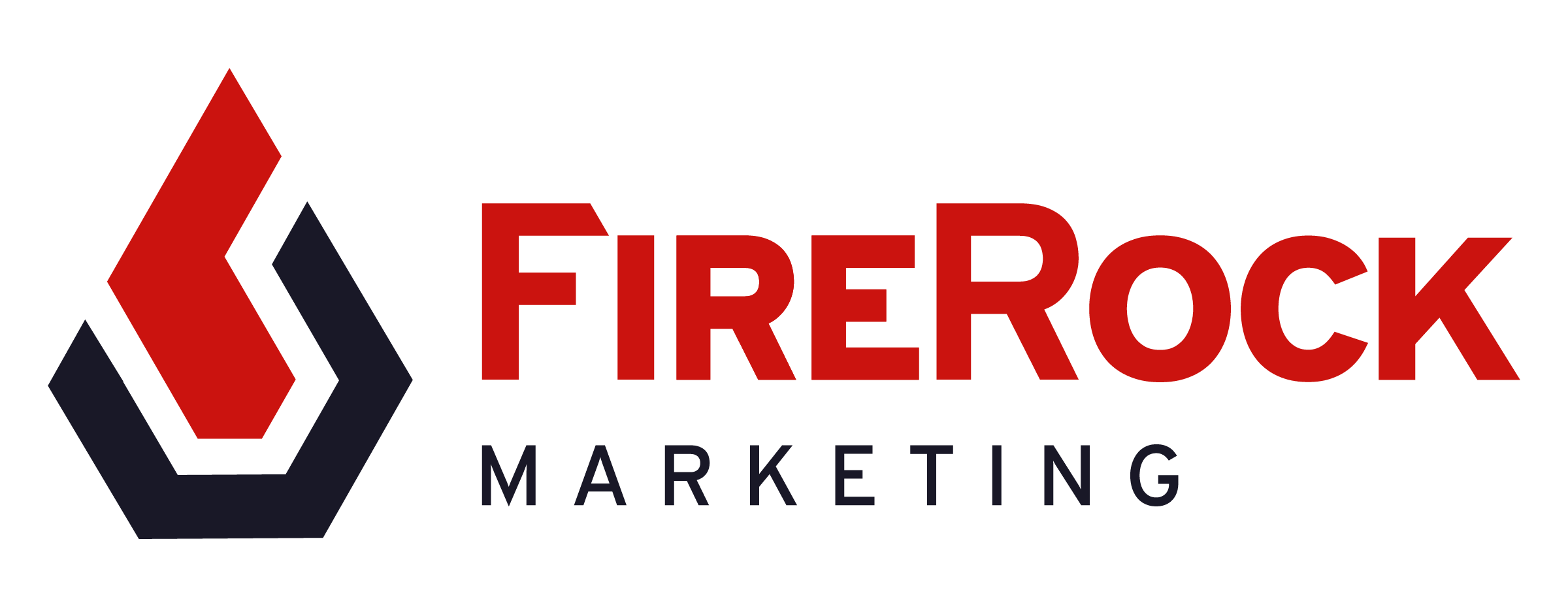Introduction
In digital marketing, two terms often come up: Marketing Automation and Digital Transformation. If you’re a small business owner aiming to boost your online presence and tap into a wider customer base, understanding these concepts is key. Marketing Automation Consultant refers to the use of software and technology to automate marketing tasks and processes, making your campaigns more efficient and personalized. On the other hand, Digital Transformation involves integrating digital technology into all areas of your business, fundamentally changing how you operate and deliver value to customers.
For a quick glimpse into what could shape your success with marketing automation, consider these tips from experts:
– Ensure your marketing tools align with your business goals.
– Focus on gathering and analyzing data to know your customers better.
– Integrate your marketing automation tools with your existing CRM systems for seamless operations.
– Keep evolving with the technology; what worked yesterday might not work tomorrow.
– Always measure the results of your marketing efforts to identify areas for improvement.
Using marketing automation tools isn’t just about making things easier; it’s about making them more effective. With the right strategy and tools, you can create highly targeted campaigns that resonate with your audience, leading to better lead generation, engagement, and conversion rates.
Lastly, here’s an infographic that breaks it all down:

Embracing these concepts isn’t just an option anymore; it’s a necessity for growing your business in the digital age. Let’s dive deeper and unpack how you can leverage marketing automation and digital transformation to your advantage.
Understand Your Tools and Platforms
In marketing automation, your toolbox is everything. Marketing Automation Platforms like Marketo, Pardot, and Hubspot have become the backbone of effective digital marketing strategies. Each platform offers unique features but share a common goal: to streamline your marketing processes, making them more efficient and impactful.
Salesforce, a giant in the CRM world, plays a crucial role in this ecosystem. Integrating Salesforce with your chosen marketing automation platform can supercharge your marketing efforts, providing a seamless flow of information between marketing and sales. This integration ensures that your team has a 360-degree view of the customer, enabling personalized and timely interactions.
Marketing Automation Platforms
- Marketo: Known for its robustness, Marketo is a favorite among marketers looking for scalability and depth in their marketing automation efforts.
- Pardot: As a Salesforce company, Pardot offers a seamless integration with Salesforce, making it an excellent choice for businesses already using Salesforce as their CRM.
- Hubspot: With its user-friendly interface, Hubspot is ideal for small to medium-sized businesses looking for an all-in-one inbound marketing solution.
CRM Integration
Integrating your marketing automation platform with a CRM system like Salesforce is not just beneficial; it’s essential. This integration allows for:
– A unified view of each customer
– Better lead management and scoring
– Personalized marketing campaigns based on customer data
– Enhanced reporting and insights
The synergy between your marketing automation platform and CRM system enables your marketing and sales teams to work together more effectively, driving better results for your business.
Salesforce
Salesforce is more than just a CRM; it’s a powerful platform that, when combined with marketing automation tools, can significantly enhance your marketing strategies. With Salesforce, you can:
– Track customer interactions across multiple channels
– Automate repetitive tasks to increase efficiency
– Create personalized customer journeys
– Measure the impact of your marketing activities with advanced analytics
Understanding how to harness the power of these tools and platforms is crucial for any marketing automation consultant. It’s not just about knowing what each tool does but understanding how to integrate them into a cohesive system that drives results.
The key to success in marketing automation lies in selecting the right tools for your business needs and integrating them effectively to create a seamless, automated marketing ecosystem. This not only saves time but also enhances the customer experience, ultimately leading to increased customer loyalty and higher ROI.
To dive deeper into how these tools can transform your marketing efforts, consider exploring resources that offer insights and best practices. One such source is the vibrant discussions and shared experiences from professionals on platforms like Reddit, which can provide valuable perspectives on navigating the complexities of marketing automation .
Remember that understanding your tools and platforms is just the beginning. The real magic happens when you leverage these technologies to build meaningful connections with your customers, driving not just conversions, but lasting relationships.
Let’s proceed to the next section, where we’ll explore how to master lead management and conversion, a critical aspect of making the most out of your marketing automation efforts.
Focus on Lead Management and Conversion
When you dive into marketing automation, one of the key areas to zero in on is Lead Management and Conversion. This isn’t about blasting your audience with generic messages. It’s about understanding their needs, engaging them with personalized content, and guiding them smoothly from interest to purchase. Here are the essentials:
Lead Generation: Start with Value
The first step is to attract potential customers. But how? Offer something valuable. It could be insightful content, a free tool, or exclusive access. Whatever it is, make it so good that people can’t help but give you their contact information in exchange. The quality of your leads is more important than quantity.
User Interaction: Listen and Learn
Once you have their attention, it’s time to engage. This isn’t a one-way street. Use marketing automation tools to listen to your leads. What pages are they visiting? What content are they consuming? This information helps you understand their interests and pain points.
Trigger-Based Campaigns: Timing is Everything
Not all leads are ready to buy right away, and that’s okay. With trigger-based campaigns, you can send the right message at the right time. For example, if a lead downloads a guide from your site, you can follow up with related content or a special offer related to that guide. It’s about being relevant and timely.
Email Automation: Keep the Conversation Going
Email remains one of the most effective ways to nurture leads. But, don’t just send out mass emails. Use automation to personalize your messages based on user behavior and preferences. A well-timed, relevant email can move a lead closer to making a purchase.
Sales Conversion: Smooth the Path
The goal is to convert leads into customers. Here, integration between your marketing automation platform and your CRM system is crucial. It ensures that sales has all the information they need about a lead’s interests and interactions. This enables them to have more meaningful conversations and close deals more effectively.
In conclusion, managing leads and converting them into customers is an art and a science. By focusing on lead generation, engaging users through personalized interactions, launching trigger-based campaigns, utilizing email automation, and smoothing the path to sales conversion, you’re setting up a solid foundation for success. The goal of marketing automation isn’t just to automate tasks—it’s to create a more personalized, efficient, and effective marketing process that leads to real, measurable results.
Remember that the real magic of marketing automation lies in its ability to foster genuine connections. It’s not just about the technology; it’s about how you use it to understand and meet the needs of your customers.
Let’s now dive into the technical and marketing skills you’ll need to make all of this happen.
Gain Technical and Marketing Skills
To thrive as a marketing automation consultant, mastering both technical and marketing basics is crucial. This blend of skills allows you to not only understand the tools at your disposal but also how to use them to create effective marketing strategies.
Technical Skills
Technical skills are the backbone of marketing automation. You need to be comfortable with various marketing automation platforms like Marketo, Pardot, and HubSpot. Understanding how to integrate these platforms with CRM systems, like Salesforce, is also vital. These technical skills ensure you can set up, manage, and optimize marketing automation systems effectively.
Marketing Basics
Understanding the fundamentals of marketing is just as important as the technical aspects. This includes knowledge of customer journey mapping, content marketing, and email marketing strategies. Knowing how to engage an audience and move them through a sales funnel is essential to leverage marketing automation fully.
Certification
Certifications can boost your credibility and demonstrate your expertise in specific platforms or marketing concepts. Many platforms offer their own certification programs, such as the HubSpot Inbound Marketing Certification or the Marketo Certified Expert. These certifications not only validate your skills but also keep you updated on the latest marketing automation trends and practices.
Portfolio Building
Creating a portfolio of your work is a tangible way to showcase your skills and achievements. Include examples of successful automation campaigns, email templates, landing pages, and any strategies you’ve developed. A well-rounded portfolio demonstrates your capability to potential clients or employers.
Networking
Networking plays a significant role in your development and success as a marketing automation consultant. Connecting with peers, joining professional groups, and participating in forums can provide invaluable insights and opportunities. Sharing experiences and asking questions in communities, like on Reddit’s marketing automation discussions, can deepen your understanding and expose you to real-world challenges and solutions.
By focusing on these areas, you’ll build a solid foundation that combines the technical prowess needed to manage complex automation systems with the marketing savvy required to create impactful campaigns. The journey to becoming a skilled marketing automation consultant is ongoing. The landscape is always evolving, and staying ahead means continuously learning, adapting, and applying new strategies to drive success.
Implement Strategic Automation Processes
To truly succeed in the realm of marketing automation, adopt a strategic approach. This involves several key stages, including Strategy Development, Audits and Assessments, Procurement Support, Setup and Launch, Optimization, and Ongoing Execution. Let’s dive into what each of these stages entails and how they contribute to a successful marketing automation strategy.
Strategy Development
First and foremost, crafting a comprehensive strategy is critical. This begins with understanding your business goals, target audience, and the customer journey. A marketing automation consultant plays a pivotal role here, helping to map out how automation can align with and accelerate your marketing objectives. It’s about seeing the big picture and setting a clear direction for your automation efforts.
Audits and Assessments
Before diving into new tools or revamping existing processes, it’s vital to know where you stand. An audit of your current marketing automation setup can reveal a lot. It helps identify what’s working, what’s not, and where there are gaps in your strategy. This step ensures you’re not building on shaky foundations but instead making informed decisions moving forward.
Procurement Support
Choosing the right marketing automation software can be daunting. There are numerous options out there, each with its own set of features and benefits. A consultant can provide invaluable support, helping you navigate the market, assess your needs, and select a platform that aligns with your business goals. The goal is to avoid “shelfware” – expensive tools that never get used to their full potential.
Setup and Launch
Getting started with a new marketing automation platform is no small feat. It involves configuring settings, integrating with other tools, and launching initial campaigns. This phase is critical for ensuring a smooth takeoff. With expert guidance, you can avoid common pitfalls and set up a system that’s primed for success from day one.
Optimization
The work doesn’t stop once you’re up and running. Marketing automation is a continuous process of learning and improvement. Regularly reviewing your campaigns’ performance, experimenting with new tactics, and fine-tuning your approach are all part of the optimization process. It’s about making iterative improvements that drive better results over time.
Ongoing Execution
Finally, the long-term success of your marketing automation efforts relies on consistent, strategic execution. This includes everything from managing day-to-day operations to exploring new technologies and strategies. A marketing automation consultant can provide ongoing support, helping you navigate the ever-changing landscape and ensure your marketing automation efforts continue to thrive.
In summary, implementing strategic automation processes is a multifaceted endeavor that requires careful planning, execution, and ongoing management. By focusing on these key stages, businesses can maximize the impact of their marketing automation investments and drive significant improvements in efficiency, engagement, and ultimately, revenue .
It’s important to remember that the journey doesn’t end with implementation. The next step is to leverage analytics and reporting to measure success, make data-driven decisions, and continually refine your approach for even better outcomes.

Leverage Analytics and Reporting
After setting up your marketing automation system, the real magic starts with leveraging analytics and reporting. This is where you, as a marketing automation consultant, turn data into actionable insights. Let’s break down how you can do this effectively.
Data Analysis
It all begins with data. By deeply understanding the data generated by your marketing activities, you can identify what’s working and what’s not. This involves looking at email open rates, click-through rates, website traffic, conversion rates, and more. The key is to not just collect data, but to analyze it to uncover patterns and opportunities for optimization.
Reporting
Regular reporting is crucial. It helps you and your team stay informed about the performance of your marketing efforts. Simple, clear reports that highlight key metrics and changes over time can make a big difference. They allow you to quickly adjust your strategies and ensure that your marketing automation efforts are aligned with your business goals.
ROI Measurement
Understanding the return on investment (ROI) of your marketing activities is essential. This involves calculating not just the immediate returns, but also the long-term impact of your marketing automation strategies. By attributing revenue to specific campaigns or activities, you can identify which parts of your marketing automation are most effective at driving growth.
Database Segmentation
One of the powers of marketing automation is the ability to segment your database. This means dividing your contacts into smaller groups based on certain criteria, like behavior or demographics. This allows for more targeted and personalized marketing efforts. Effective segmentation can lead to higher engagement rates and more successful campaigns.
Account-Based Marketing (ABM)
ABM is a strategic approach that coordinates personalized marketing and sales efforts to open doors and deepen engagement at specific accounts. By leveraging your marketing automation tools, you can deliver targeted messages and content to key accounts. This focused approach can significantly improve the effectiveness of your marketing and sales efforts.
In conclusion, leveraging analytics and reporting is not just about collecting data. It’s about using that data to make informed decisions, refine your strategies, and demonstrate the value of your marketing automation efforts. By focusing on data analysis, regular reporting, ROI measurement, database segmentation, and ABM, you can ensure that your marketing automation is continually improving and contributing to your business’s success.
The goal is not just to automate your marketing, but to make it smarter, more efficient, and more effective. With the right approach to analytics and reporting, you can achieve just that.
Frequently Asked Questions about Marketing Automation Consulting
After diving deep into marketing automation, it’s natural to have questions. Let’s tackle some of the most common queries about marketing automation consulting.
What is a Marketing Automation Consultant?
A marketing automation consultant is essentially a guide in the complex world of digital marketing. They are experts in using software to streamline marketing processes. This means they help businesses send the right message, to the right people, at the right time, without manual effort for each interaction. Their main goal? To boost efficiency, improve conversion rates, and increase sales by making your marketing operations as smooth and automatic as possible.
How Do I Become a Marketing Automation Consultant?
Becoming a marketing automation consultant requires a mix of technical know-how, marketing skills, and a deep understanding of various automation platforms like Marketo, Pardot, and HubSpot. Here’s a simple roadmap:
- Learn the Basics: Understand the principles of digital marketing and how automation fits into the bigger picture.
- Get Certified: Platforms like HubSpot offer free certifications that are a great place to start. These show you’ve got the skills and knowledge to handle the tools.
- Gain Experience: Apply what you’ve learned in real-world scenarios. This could be through internships, volunteering for projects, or working within a marketing team. Hands-on experience is invaluable.
- Build a Portfolio: Document your successes with automation. This could include campaigns you’ve run, efficiencies you’ve improved, or sales you’ve increased.
- Network: Connect with other professionals in the field. LinkedIn, marketing forums, and local meetups are great for this.
Continuous learning is key in this rapidly evolving field .
What Does a Marketing Automation Specialist Do?
A marketing automation specialist dives into the technical side of marketing campaigns. They focus on the tools and software that automate marketing activities. Their day might include setting up email campaigns that trigger based on specific actions, scoring leads to prioritize follow-ups, or analyzing data to refine strategies.
They work closely with the marketing team to ensure that the technology supports the overall marketing strategy. Their ultimate aim is to make the marketing process more efficient, freeing up human marketers to do what they do best — be creative and strategic.
Whether you’re considering becoming a marketing automation consultant or hiring one, their role is pivotal in navigating the digital marketing landscape efficiently. They help bridge the gap between technology and marketing strategy, ensuring that businesses can reach their audiences effectively and at scale.
Conclusion
In the vast and changing world of digital marketing, the role of a marketing automation consultant has become increasingly pivotal. At FireRock Marketing, we understand the complexities and nuances of marketing automation, and we’re dedicated to helping businesses harness its full potential.
Our key takeaway for businesses is clear: to thrive in today’s digital landscape, embracing marketing automation is not just an option, but a necessity. It streamlines your marketing efforts, ensures consistent and personalized communication with your audience, and ultimately, drives better results with less effort.
Here are a few reasons why partnering with a marketing automation consultant from FireRock Marketing can be a game-changer for your business:
- Expertise on Demand: Our consultants are well-versed in the latest marketing automation platforms, including Marketo, Pardot, and Hubspot. They bring a wealth of knowledge and experience to the table, ensuring that your marketing automation efforts are both efficient and effective.
- Strategic Insights: Beyond technical know-how, our team provides strategic insights that align with your business goals. Whether it’s lead generation, sales conversion, or enhancing customer engagement, we tailor our approach to meet your specific needs.
- Analytics and Optimization: With a keen eye on analytics, we not only implement marketing automation strategies but also continuously monitor and optimize them. This data-driven approach ensures that your marketing efforts are always aligned with your business objectives and are delivering the highest possible ROI.
- Seamless Integration: Our expertise extends to CRM integration, ensuring that your marketing automation tools work in harmony with your existing systems. This seamless integration is crucial for maintaining a cohesive and efficient marketing strategy.
Let’s not forget, digital marketing is dynamic, and staying ahead of the curve requires both innovative thinking and strategic planning. That’s where a marketing automation consultant from FireRock Marketing comes in. We’re not just consultants; we’re your strategic partners, dedicated to helping you navigate the complexities of digital marketing and achieve sustainable growth.
So, if you’re ready to unlock the full potential of marketing automation and propel your business to new heights, we’re here to help. Let’s start a conversation about your marketing automation needs and how we can support your journey towards digital excellence. Discover more about our marketing automation services at FireRock Marketing.
The next move is yours. Partner with us, and let’s craft a future where your marketing isn’t just automated—it’s transformative.

In the words of many successful marketers and as echoed in the experiences shared on platforms like Reddit, marketing automation isn’t just a tool—it’s a game changer. It’s time to make it an integral part of your marketing strategy.


